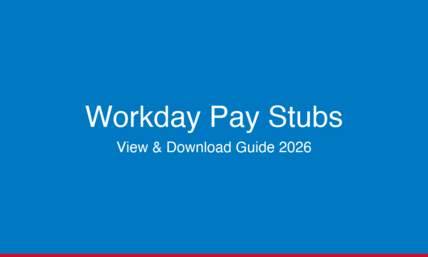How To Become a Tax Preparer and How Long Does It Take?
If you're looking to start a new career and become a tax preparer, you've come to the right place. Tax preparation is an increasingly popular career choice, and it is a necessary service for the community. But how do I become a tax preparer? What sort of tools does a tax preparer need? What does a tax professional even do day-to-day?
In this guide, we'll cover these questions and take you through everything you need to know about how to become a professional tax preparer. It explains essential credentials of this job, including how to assist clients who may need to make check stubs for income verification.
If you want to know about the job and everything you need before becoming a tax preparer, then read on.
- What Does a Tax Preparer Do?
- Basic Requirements To Become a Certified Tax Preparer
- Do You Need a License To Prepare Tax Returns?
- What Is IRS Tax Preparer Certification?
- Preparer Tax Identification Number (PTIN)
- How To Get a Preparer Tax Identification Number
- How Long Does It Take To Become a Tax Preparer?
- Final Thoughts
What Does a Tax Preparer Do?
Tax preparers are generally responsible for filing and assisting with tax forms. Their primary role is to prepare tax returns for individuals and businesses. Apart from these services, tax professionals also defend taxpayers with the IRS, which involves audits and tax court issues. Although this depends on how qualified you are. Therefore, what a tax preparer can do depends on their specific credentials and whether or not they have representation rights.
Tax preparers have two masters to serve: the IRS and their clients. They assist the clients in complying with federal and state tax regulations. They also try to minimize their clients' tax burdens. While tax preparers are indeed hired to serve the client, they must also follow laws and regulations. They should never help someone file a fraudulent tax return.
Basic Requirements To Become a Certified Tax Preparer
To become a tax preparer, you must meet a few basic requirements. The path to becoming a tax pro involves the following steps:
1. The Know-How and Education
For the majority of new tax preparers, understanding the ins and outs of the tax business can be difficult. It's a lot like learning a foreign language. Sometimes, this know-how comes by way of a certification. However, discovering a platform that will boost your knowledge of taxation will be a huge benefit to your success.
Many aspiring preparers start by taking a tax preparation course. To advance, many tax professionals pursue credentials like the certified public accountant (CPA) designation or become enrolled agents.
2. The Technology
Just like most other careers, having access to the proper technology will allow you to work with heightened efficiency. It may also boost your success generally in your new venture. Certain tax professionals use tax preparation software tools. It helps them accomplish their goals in the workplace easily. This tax software is essential for every tax return preparer to accurately prepare and file tax returns.
3. The Clients
It goes without saying that a certified tax preparer needs to have clients for their business to be profitable. The majority of tax preparers start small and build up their clientele over the course of many months. Beginning with individual tax returns is a good idea for new tax preparers who are just starting out. This allows you to gain experience before handling more complex returns.
You'll also need to understand documents like pay stubs. Clients use their pay stubs to verify their income and employment details. Keep in mind that you can use a pay stub template to create this document.
Do You Need a License To Prepare Tax Returns?
As previously stated, the first thing any tax return preparer needs is to get a PTIN. This is different from a license. A tax preparer license is not required at the federal level to become a tax preparer. However, it is different if you want to achieve unlimited representation rights to represent clients before the IRS. Then you must be a licensed attorney, certified public accountant, or an enrolled agent.
That being said, there are several states in the U.S. that do require a license to become a professional tax preparer. These state-level requirements often involve their own registration, exams, and continuing education. You need to register and pass the exams.
The following require an additional credential to become a tax preparer at the state level:
-
California
-
Connecticut
-
Illinois
-
Maryland
-
Nevada
-
New York
-
Oregon
What Is IRS Tax Preparer Certification?
The IRS requires all paid tax preparers to undergo a suitability check for EFIN and be issued a preparer tax identification number (PTIN). While there isn't a single federal tax preparer license, there are important certification programs. For instance, an enrolled agent (EA) will need to achieve additional requirements, where you have to pass a rigorous exam.
Another key credential is the Annual Filing Season Program (AFSP). It provides a Record of Completion to preparers who complete continuing education. An electronic filing identification number (EFIN) is also required if you plan to use e-file systems to file tax returns.
For tax preparers, we recommend having proof of income. One document you can use as proof of income is your paystub. To create it, simply use our 123 paystub approach. You just need to fill in your employee details, preview and download your pay stub immediately.
Preparer Tax Identification Number (PTIN)
To be one of the paid tax preparers, the first step is to apply for a preparer tax identification number (PTIN). This is a non-negotiable IRS tax preparer requirement. It is for anyone who wants to legally prepare and file tax returns for a fee.
How To Get a Preparer Tax Identification Number
To obtain a preparer tax identification number, you must visit the IRS website. The process is straightforward and involves creating an account and completing an online application. A PTIN needs to be renewed yearly. There is a registration fee for obtaining your PTIN.
After a PTIN has been issued, you need to include this number on every tax return you prepare. For more details, the IRS website offers useful information for new tax preparers.
How Long Does It Take To Become a Tax Preparer?

This depends on the time it takes to apply for a PTIN and EFIN. However, the more appropriate question to ask is "How long does it take to be a seasoned tax preparer?" The ability to make tax preparation a successful career and get paid well depends on your skill, knowledge, and experience.
The majority of tax preparers need at least two tax seasons just to learn the foundations of tax preparation. If you want to start working as part of a firm or as a sole practitioner, the progression of a tax preparer's career is comparable.
Most tax preparers focus only on raw data entry in the first year. After this, a tax preparer can have a wider range to work with. You can start preparing returns immediately after receiving your PTIN. However, gaining confidence and expertise commonly takes 2–5 tax seasons. As long as you have all the necessary skills and experience, you can conduct a proper skill assessment to know you’re ready.
In many cases, it takes most people around 5 years. During this period, you would have learnt all about the niche areas and everything about tax preparation. Over time, you will have enough experience, which can set you apart from other tax professionals.
Final Thoughts
Tax preparation is always a good starting point. Especially if you're looking for a new career with the potential for extra income and flexible hours. There is a high demand for qualified tax preparers in the U.S., and taxes aren't going away anytime soon! A career in tax can be a highly rewarding and prosperous career. You just need enough hard work and the willingness to learn.
Our paystubs maker allows you to create pay stubs in a simple and easy-to-use manner. This especially helps when it's time to file and prepare taxes.















